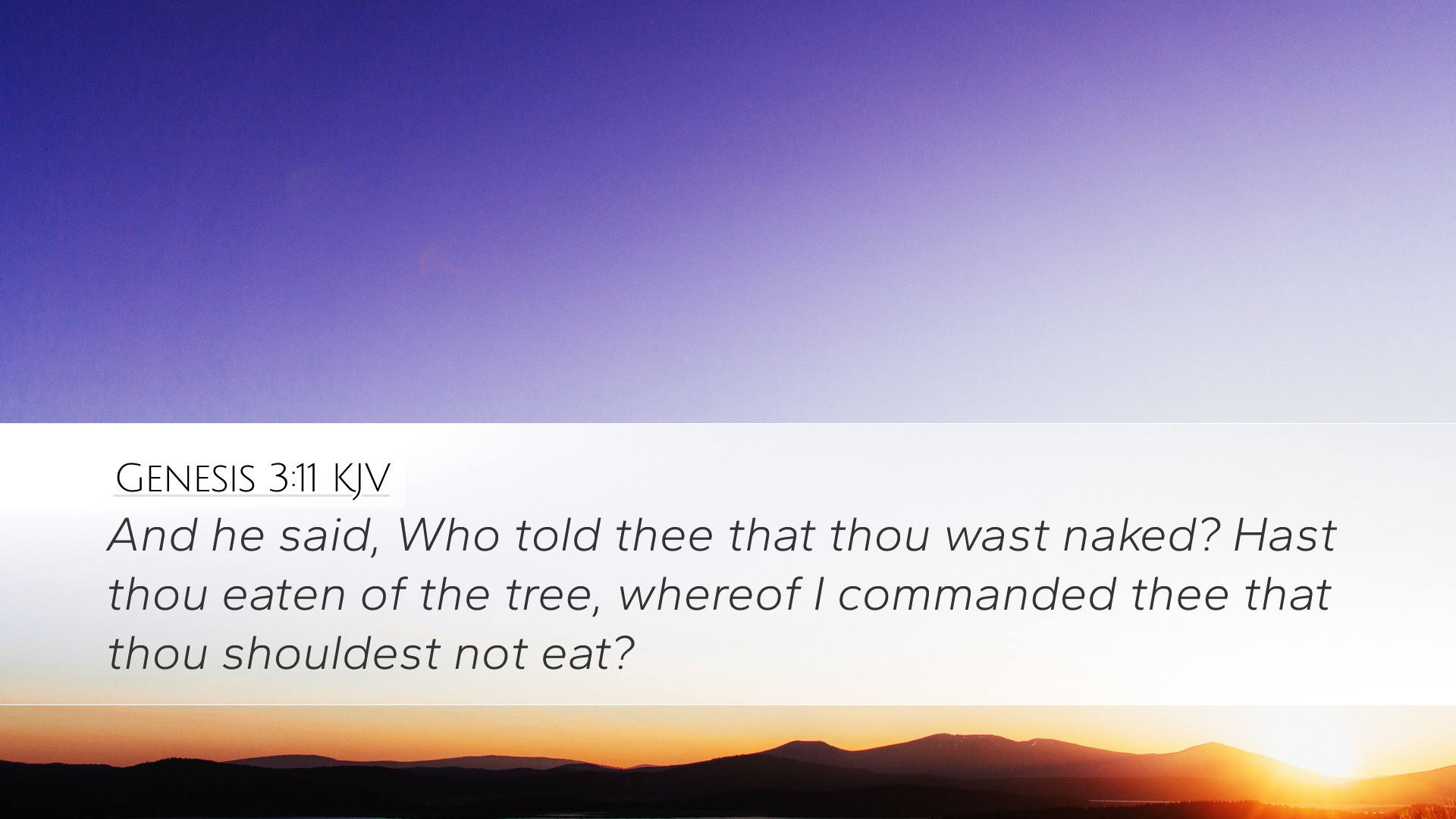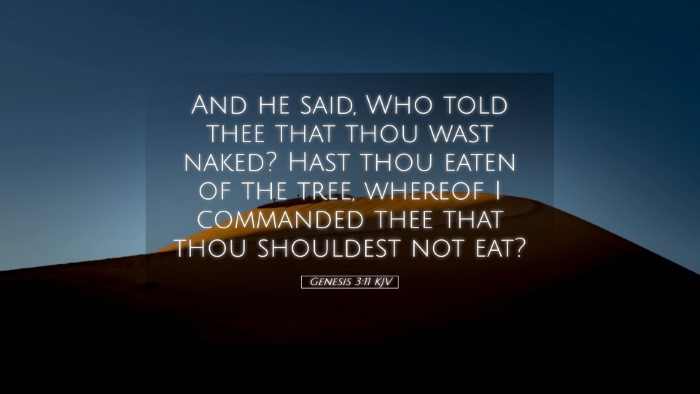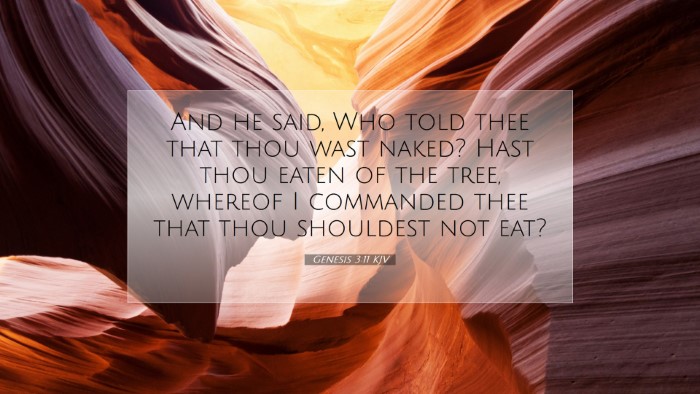Commentary on Genesis 3:11
Verse: Genesis 3:11 - “And He said, 'Who told you that you were naked? Have you eaten from the tree of which I commanded you that you should not eat?'”
Contextual Background
The immediate context of Genesis 3:11 takes us to the defining moment of human fallibility and sin. After the transgression of Adam and Eve, when they chose to eat from the tree of the knowledge of good and evil, there was a significant shift in their relationship with God. This verse captures the moment of divine inquiry, showcasing God's desire for confession and reconciliation.
Theological Insights
Theologically, this verse raises profound questions about knowledge, morality, and human disobedience. God’s question, “Who told you that you were naked?” suggests a moment of enlightenment that came at a great cost. Here, nakedness symbolically represents innocence lost and the reality of shame.
Interpretation by Matthew Henry
Matthew Henry stresses the immediate awareness Adam and Eve felt after their disobedience, interpreting their nakedness not merely as a physical state but as a spiritual awakening to their moral condition. Henry notes, “Their eyes were opened to that which was evil; they had lost their innocence and, hence, their peace.”
Furthermore, Henry points out how God’s inquiry is not one of ignorance but rather a means to elicit admission of guilt. This points to God’s character in seeking to restore rather than condemn immediately.
Insights from Albert Barnes
Albert Barnes brings attention to the rhetorical nature of God’s question. He observes, “God asks not to gain information but to provoke self-reflection in Adam.” In this light, Barnes interprets the question as a divine invitation for repentance and recognition of wrongdoing.
Barnes also emphasizes the tragic irony of their newfound knowledge leading to shame rather than enlightenment. The pursuit of wisdom outside of God’s command results in alienation rather than closeness to God.
Adam Clarke's Perspective
Adam Clarke elaborates on the implications of the knowledge of good and evil. He notes that their choice to eat resulted in a moral state that altered their view of God and themselves. Clarke observes, “The very question itself exposes the folly of their act and evokes the inherent responsibility of moral agents.”
Additionally, Clarke asserts the importance of God’s word in recognizing sin. The phrase “Have you eaten from the tree...” underscores the directness of sin's consequence and the pivotal role of divine command in human conduct.
Lessons for Pastors and Scholars
For pastors, this passage is a rich source for preaching on themes of sin, grace, and redemption. Understanding the dynamics of God's inquiry can serve as a powerful illustration of God's desire for accountability and repentance.
The importance of God’s questions to humanity persists today. Just as God sought to draw Adam and Eve back into communion, He continues to invite believers into a relationship marked by transparency and grace.
Practical Applications
- Encouragement for Confession: Just as Adam and Eve were confronted with their transgression, believers today are encouraged to confess their sins, knowing that God seeks restoration.
- Awareness of Moral Responsibility: This passage provides a clear framework for understanding the consequences of human choices, advocating for a life that aligns with divine commandments.
- Reflection on God’s Character: The gentleness of God’s questioning should inspire Christians to emulate that same attitude in their dealings with others, promoting an environment conducive to openness and healing.
Conclusion
In summary, Genesis 3:11 serves as a pivotal moment in biblical history, highlighting humanity's moral choices and the resulting separation from God. The commentary from Matthew Henry, Albert Barnes, and Adam Clarke collectively informs our understanding of sin's nature and God's desire for connection. It calls on modern readers—not merely to reflect on the past—but to engage actively with the God who seeks relationship and offers redemption.


